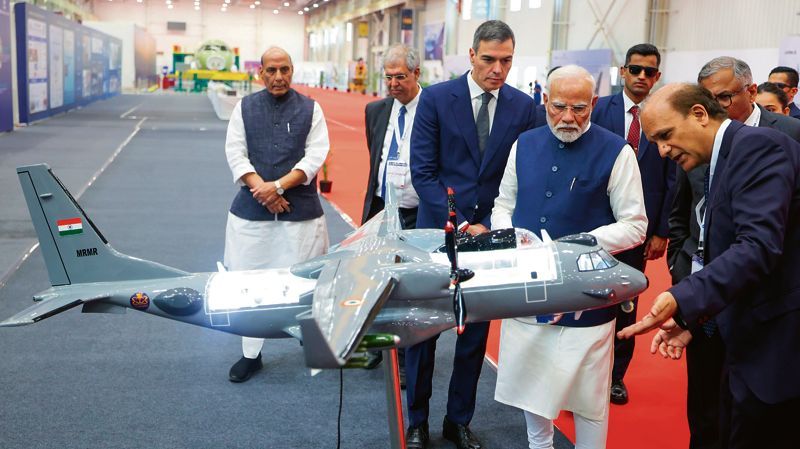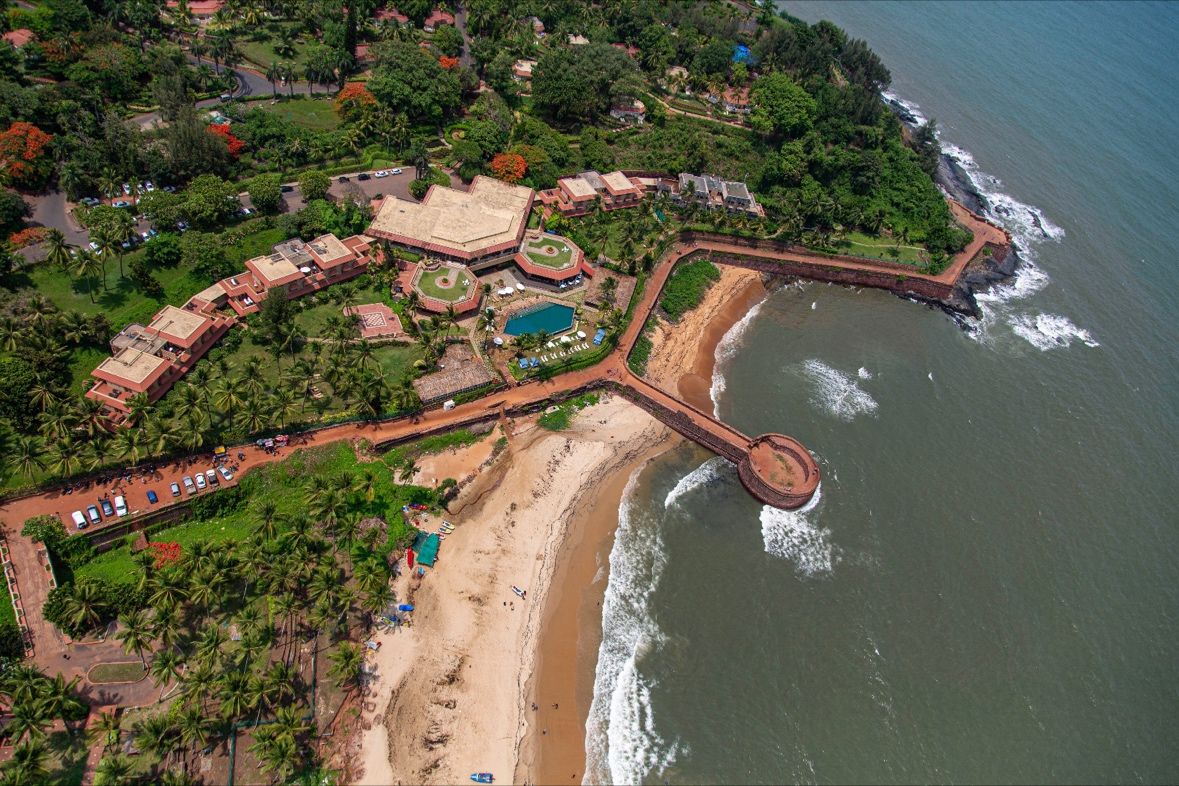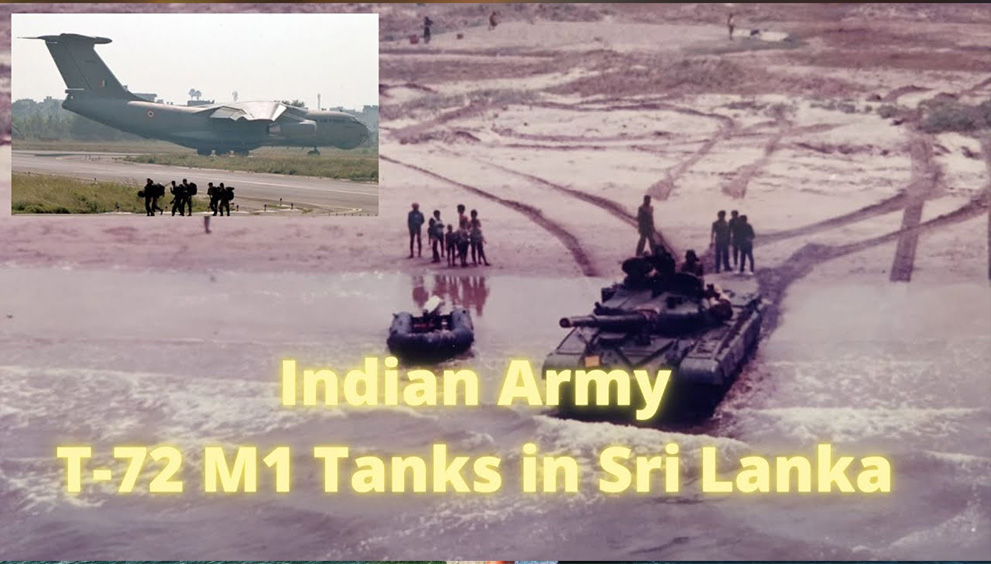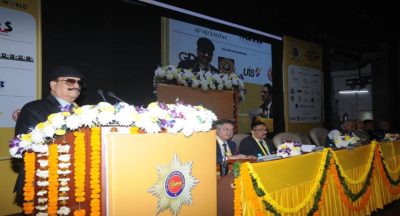Airbus-TASL is the first private military aircraft manufacturing facility in India. Of the nearly 14,000 detailed parts used to make one aircraft, 13,000 would be fully manufactured in India.
by AVM Anil Golani (Retd.)
First published on The Tribune. 05:55 AM Oct 29, 2024 IST
THE Ministry of Defence (MoD) signed a Rs 21,935-crore contract with Airbus Defence and Space in September 2021 for the procurement of 56 C-295 transport aircraft as a replacement for the IAF’s ageing Avro fleet. The deal entailed the delivery of the first batch of 16 aircraft to be manufactured and delivered from its final assembly line in Seville, Spain. The subsequent 40 will be manufactured and assembled by Tata Advanced Systems Limited (TASL) in India under an industrial partnership between India and Spain.
It is the first-ever collaboration of this kind to manufacture transport aircraft in India. The foundation stone for the TASL final assembly line facility in Vadodara, Gujarat, was laid by Prime Minister Narendra Modi on October 30, 2022. The first aircraft in flyaway condition was delivered to the then IAF chief, Air Chief Marshal Vivek Ram Chaudhari, at Seville on September 13 last year. The C-295 aircraft was formally inducted into the IAF on September 25, 2023, by Defence Minister Rajnath Singh at Air Force Station, Hindon, Ghaziabad. The first IAF squadron to be equipped with six of these aircraft was Vadodara-based 11 Squadron, also known as ‘the Rhinos’.
The C-295, a versatile military transport aircraft with a proven track record, has the capacity to carry 9.5 tonnes of payload and 70 passengers or 49 paratroopers. It will give a tremendous boost to the IAF’s capability. Having the ability to operate under all weather conditions, both during day and night, the aircraft is used worldwide by various air forces. The Airbus C-295 comes with a slew of capabilities that span across a wide range of missions, including military transport, air logistics, paratrooping, medical evacuation, search and rescue, maritime patrol, anti-submarine warfare, environmental monitoring, border surveillance, water bomber and airborne early warning.
Spanish Prime Minister Pedro Sanchez, who is on an official visit to India, and PM Modi inaugurated the TASL manufacturing facility in Vadodara on October 28. Set to be the first private military aircraft manufacturing facility in India, the first ‘Make in India’ C-295 aircraft is set to roll out in September 2026, with the final aircraft expected to be delivered by August 2031.
This project would give a much-needed impetus to the aerospace ecosystem in India wherein several micro, small and medium enterprises (MSMEs) across the country would be involved in manufacturing certain parts of the aircraft. As many as 29 MSMEs have already been identified by Airbus. The production for certain components of the aircraft has commenced at the TASL’s Main Constituent Assembly facility in Hyderabad. The electronic warfare systems provided by Bharat Electronics Limited and Bharat Dynamics Limited have been integrated into the aircraft. However, due to the delays in contract negotiation and finalisation, these would need to be upgraded. The importance of indigenous electronic warfare systems cannot be overemphasised.
This programme, according to a statement by the MoD, will act as a catalyst in employment generation in the aerospace segment. It will create 600 highly skilled jobs directly and more than 3,000 jobs indirectly. There will be an additional 3000 medium-skill employment opportunities, with more than 42.5 lakh man-hours of work within the aerospace and defence sectors in India.
Other than aeroengine and avionics, sourced by Airbus from other OEMs (original equipment manufacturers), the other structural parts will mostly be made in India. Of the nearly 14,000 detailed parts used to make one aircraft, 13,000 would be fully manufactured in India.
The real test, however, will be the timely production of 40 aircraft by TASL. At present, most of the production activities are being driven by Airbus, with TASL just executing them. The focus must shift to local production and quality control through the Directorate General of Aeronautical Quality Assurance and future certification by the Centre for Military Airworthiness and Certification. Indigenous testing and evaluation are necessary for the Indian aerospace ecosystem to flourish.
Sustained government efforts in the last decade have enabled the defence sector to grow exponentially. This is reflected in the defence production figures: they have grown from Rs 43,726 crore to Rs 1,27,265 crore, of which 21 per cent is contributed by the private sector. Defence exports, which were less than Rs 1,000 crore just 10 years ago, increased to over Rs 21,000 crore last year.
Some of the policy reforms that have helped the country achieve these figures include the provision of the Indigenously Designed, Developed and Manufactured (IDDM) category being accorded the highest priority in the Defence Acquisition Procedure 2020 for the procurement of capital equipment.
As much as 75 per cent of the modernisation budget has been earmarked for procurement through domestic industries in the current financial year. Various other initiatives taken by the government include the launch of the Self-Reliant Initiatives through Joint Action (SRIJAN) portal and Positive Indigenisation Lists (PILs), innovations for Defence Excellence (iDEX) and the establishment of defence industrial corridors in Uttar Pradesh and Tamil Nadu, with a potential investment of Rs 50,083 crore, as of September 2024.
Much, however, still needs to be done for the speedy clearance of projects by the Defence Acquisition Council and the subsequent contract negotiations, as it took nearly six years for the MoD to ink the contract with Airbus after the request for proposal (RFP) was issued in May 2013.
The Airbus-TASL partnership for the joint manufacturing of C-295 military transport aircraft in India serves as a beacon of hope and inspiration for the beleaguered aviation ecosystem in India. However, it remains to be seen whether the TASL will expand on the versions of this aircraft as a civil-certified version is also available. Production in India and future exports need to be factored in to realise the full potential of this collaboration.
Even as the road ahead for Atmanirbharta may appear arduous, the journey has been initiated by the Airbus-TASL partnership, which needs to deliver on its promise by the timely production of 40 aircraft by TASL. Experience shows that the public sector has not met the IAF expectations. This project, if executed successfully, could set the ball rolling for the private sector’s further participation, without whose support India would not be able to realise its dream of a Viksit Bharat by 2047.
About
Air Vice Marshal Anil Golani (Retd), Director General CAPS.
https://capsindia.org/air-vice-marshal-anil-golani-retd-2/
Veteran fighter pilot with nearly four decades of experience in military aviation, operations, leadership and policy with a track record of driving modernisation and change. Experienced in growing teams and leaders and leaving a lasting impact in command and staff appointments across the country.












![GNLU authorities want to cover up sexual harassment case: Fact Finding committee; Gujarat HC asks General Council to look into report [Read Order]](https://surakshitbharatabhiyan.org/wp-content/uploads/2024/03/lj_8211_Untitled-3.jpg)








![Calcutta High Court Upholds The Constitutional Validity Of The Amendments To The Patents Act [Read Order]](https://surakshitbharatabhiyan.org/wp-content/uploads/2024/05/54682.jpg)